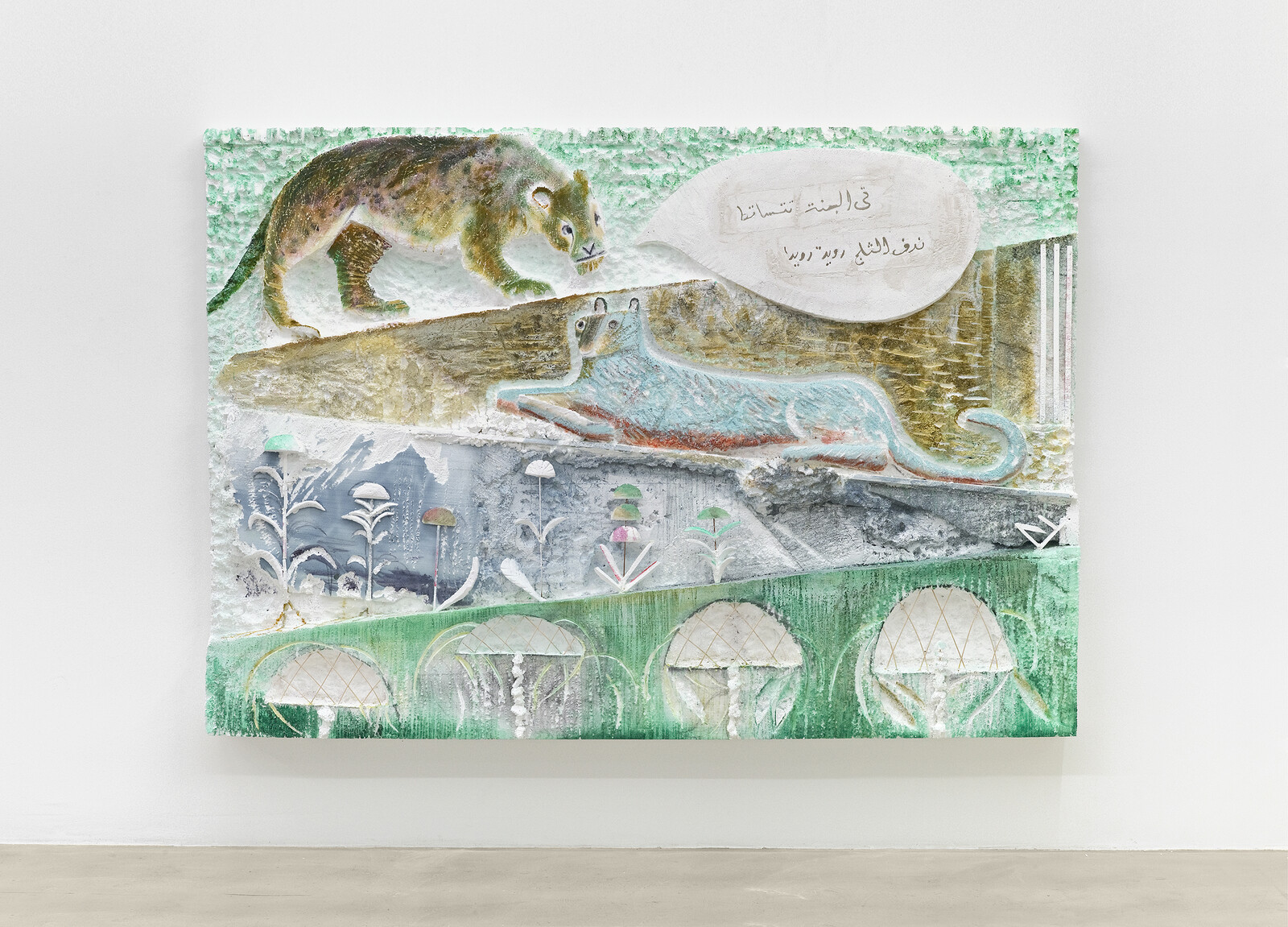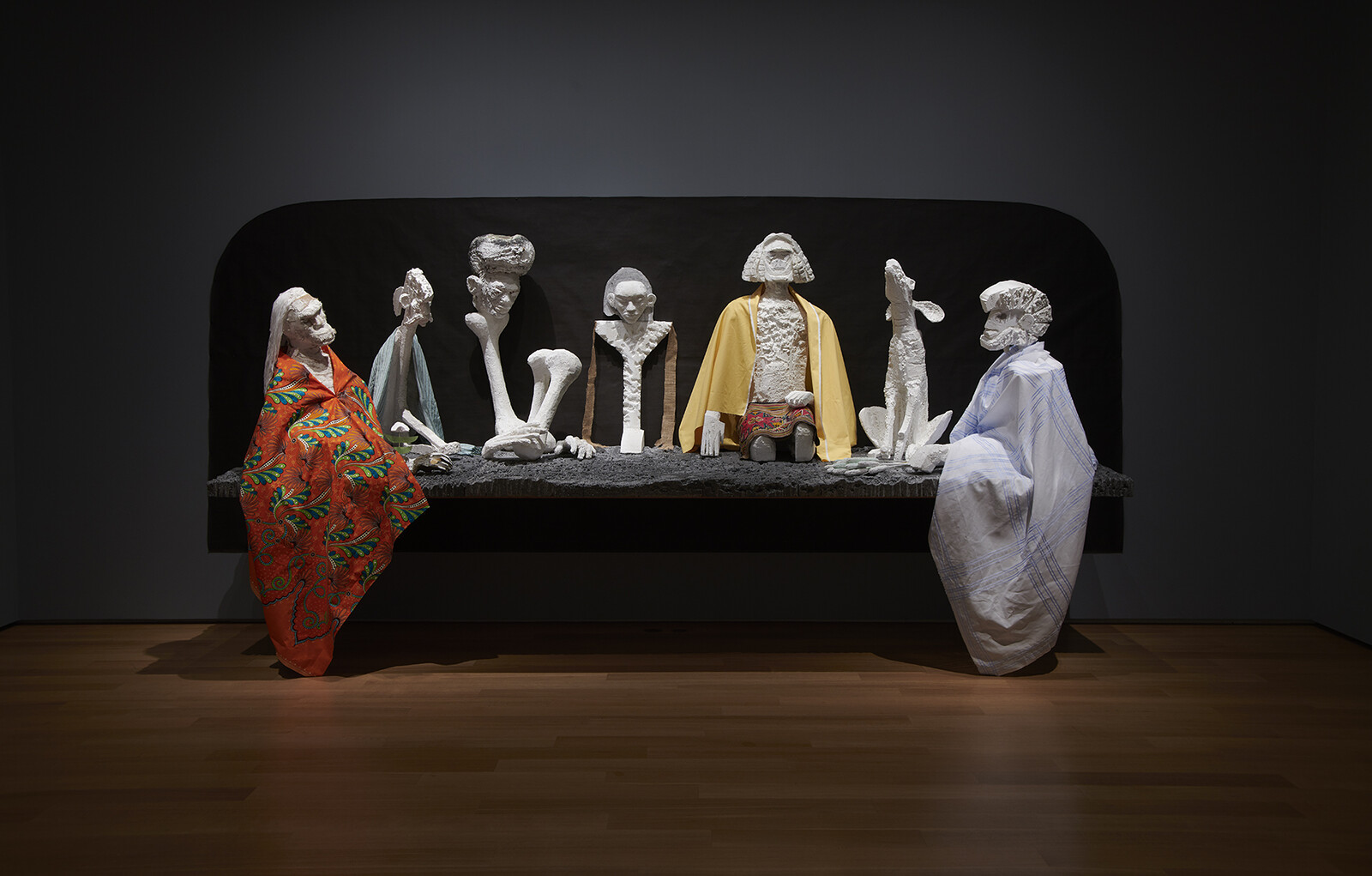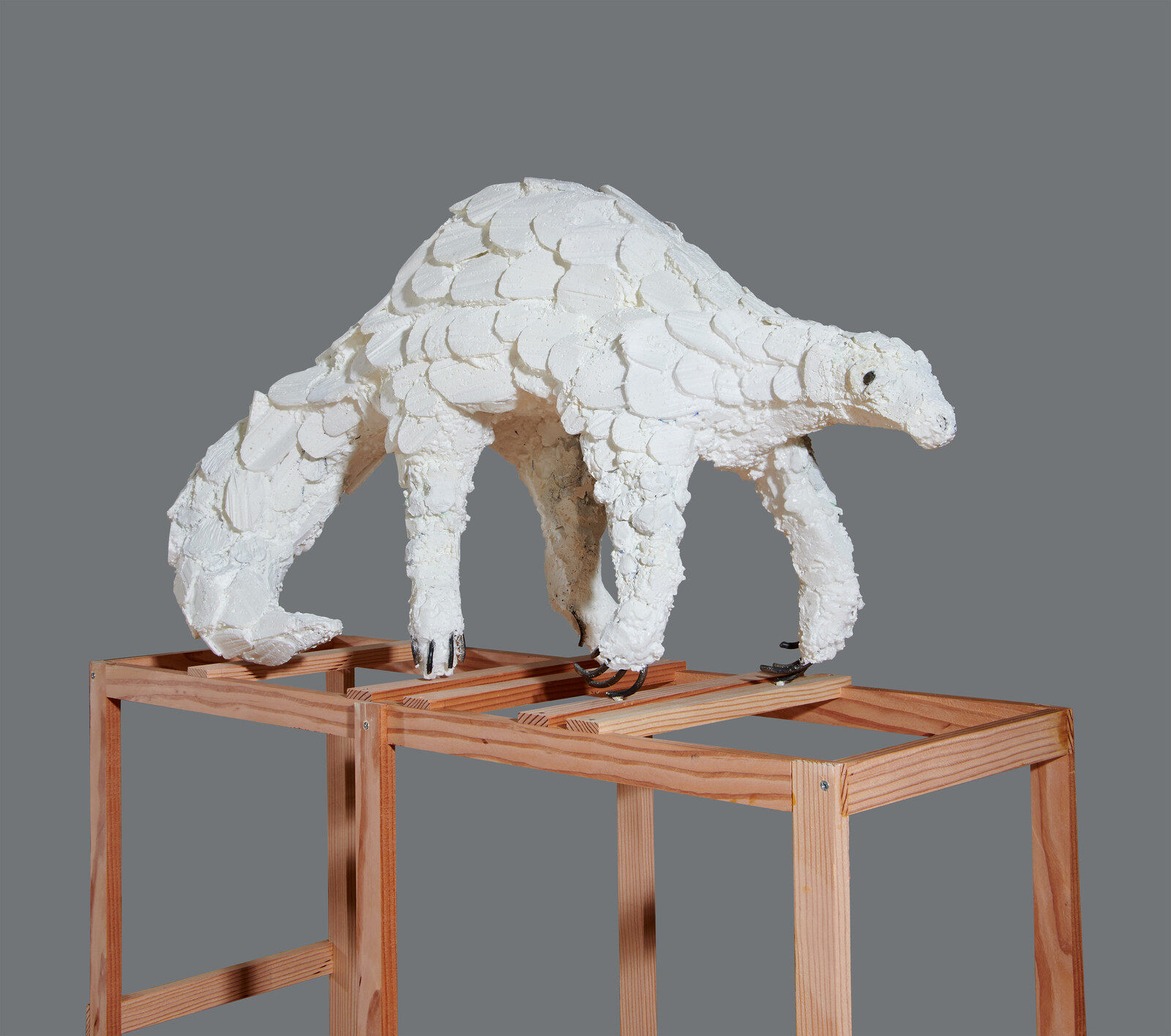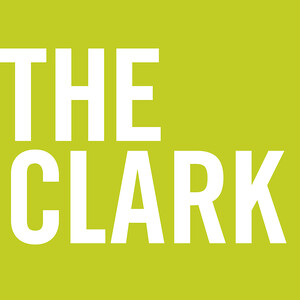Arrival of the Animals
July 21–October 25, 2020
225 South St
Williamstown, MA 01267
USA
Hours: Tuesday–Sunday 10am–5pm
T +1 413 458 2303
The Clark Art Institute presents the first solo museum exhibition of German-Iraqi artist Lin May Saeed. For the past fifteen years, Saeed (b. 1973, Würzburg, Germany; lives and works in Berlin) has focused on the lives of animals and human-animal relations. With empathy and wit, she tells stories, both ancient and modern, of animal subjugation, liberation, and cohabitation with humans, working toward a new iconography of interspecies solidarity.
Animals have arrived in the moral consciousness of many at the very moment of their mass extinction. The exhibition’s subtitle is borrowed from a short story of the same name by the author Elias Canetti. Saeed, whose roots are German-Jewish and Iraqi, appreciates Canetti’s writing for exposing power structures both within and between species. Many of Saeed’s animals arrive to reoccupy spaces that were once theirs; in other words, they return.
To imagine these worlds, Saeed often combines traditional artistic formats, such as the sculptural relief, with nontraditional materials, such as polystyrene foam. This petroleum-based, non-biodegradable plastic is easy for the artist to find (usually secondhand) and work, without assistance. For Saeed, Styrofoam is a reminder of humans’ environmental impact and a material ripe for transformation.
The exhibition presents a career-spanning selection of more than twenty objects in two- and three-dimensions, including site-specific installations. Saeed’s welded steel “gates;” carved and painted foam reliefs; free-standing animal figures; drawings and paintings; a mural-sized, cut paper “silhouette;” and an outdoor bronze sculpture all appear in the exhibition.
Though she has long been dedicated to animal rights, the idea of animal liberation, first popularized by Peter Singer’s 1975 book of the same name, gave Saeed a narrative to depict in her work. In her series The Liberation of Animals from their Cages, polystyrene animals surmount their shipping crates, treating their cages as plinths. At the end of 2019, Saeed began Pangolin for this series. A few months later, when these creatures appeared as possible hosts of COVID-19, the sculpture came to represent yet another, dark dimension of human-animal relations.
The exhibition starts and ends in caves—one of the past, the other of the future. The first contains prints and drawings from the Clark’s collections, selected with the artist, spanning four centuries of art history. These present nonhuman animals as curiosities and nemeses, metaphors and muses, objects and subjects. The last presents Saeed’s largest sculpture group to date, Seven Sleepers (2020).
Seven Sleepers revisits a legend that exists in both Christian tradition and in the Qur’an. In it, a group of Christians in third century CE, persecuted by the Roman emperor, retreats to a cave for protection. They pray fervently before falling asleep for what becomes three hundred years. Upon waking, they emerge from the cave to find that their faith has become the state religion. Depending on who tells it, the men are either guarded by a dog at the cave’s mouth or joined by one in its interior. Saeed is struck by the story as both trans-religious and interspecies. Sleep, for her, is a fascinating theme: it refuses the logic of productivity, opens onto the strangeness of dreams, and, eventually, yields to reawakening.
Lin May Saeed: Arrival of the Animals is accompanied by the artist’s first monograph, published by the Clark, and distributed by Yale University Press. It includes interpretive essays by the exhibition curator and by Mel Y. Chen, associate professor of Gender & Women’s Studies at the University of California, Berkeley. It also includes Saeed’s own writings and a previously untranslated text by the late German sociologist Birgit Mütherich, on animality and otherness.
Lin May Saeed: Arrival of the Animals is organized by the Clark and curated by Robert Wiesenberger, associate curator of contemporary projects. Saeed’s work is courtesy of the artist; Jacky Strenz, Frankfurt; and Nicolas Krupp, Basel. Major support for this exhibition is provided by Denise Littlefield Sobel. Additional funding is generously provided by Katherine and Frank Martucci.





